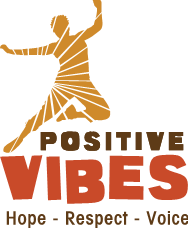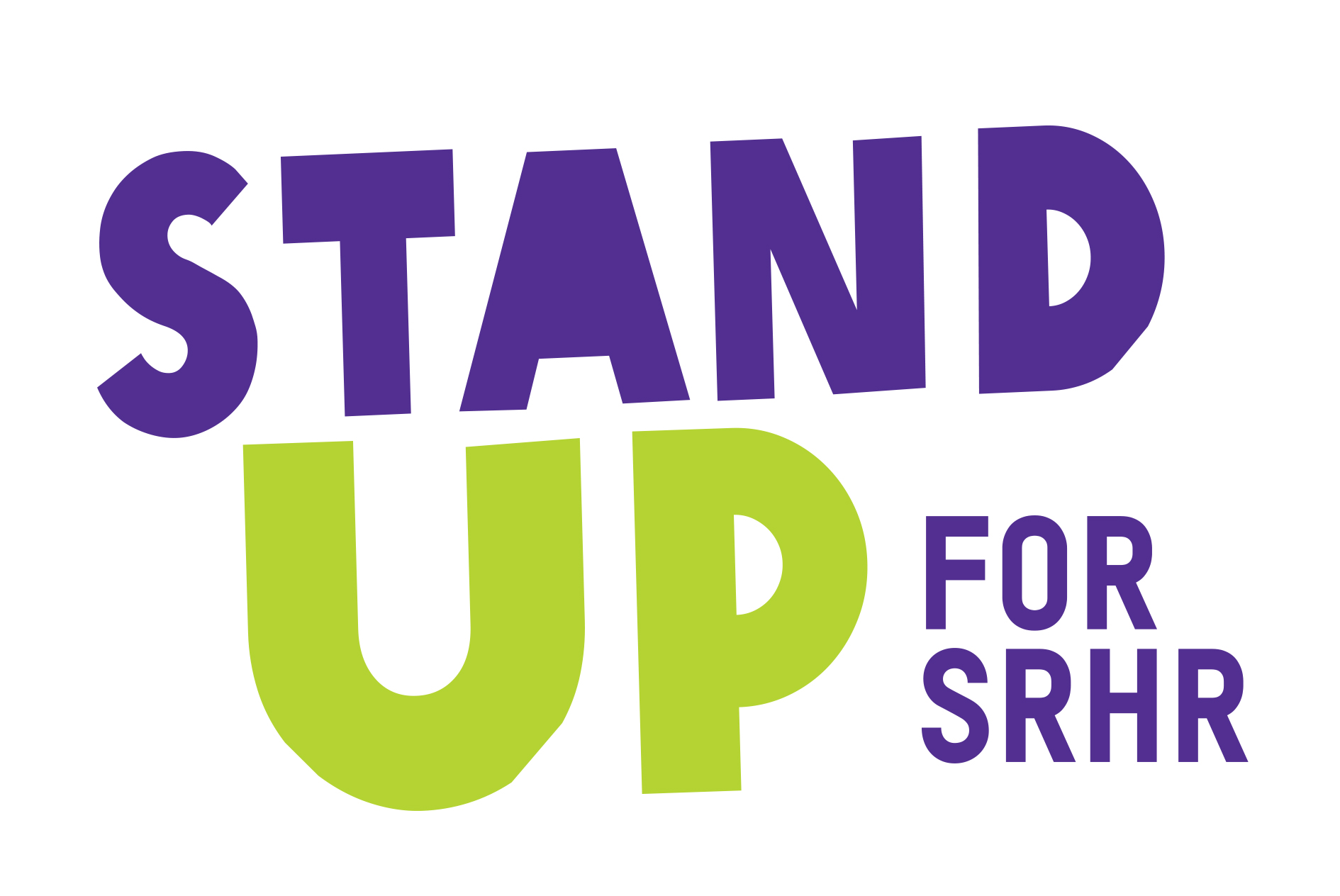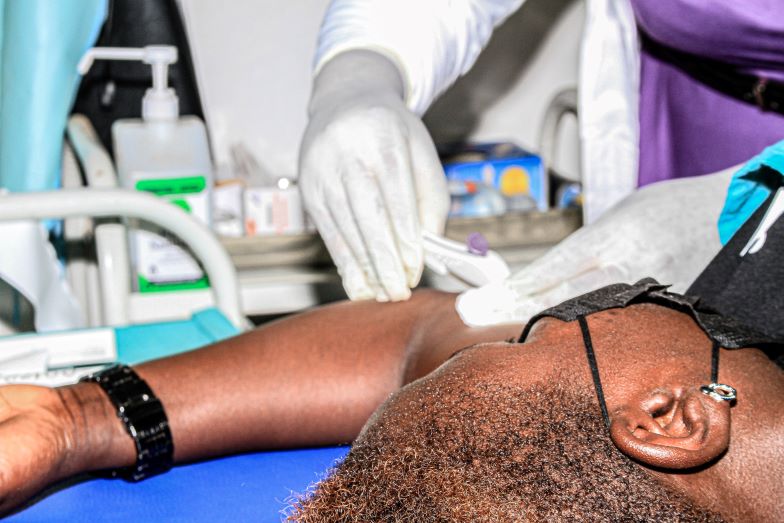By Maryanne W. WAWERU
In parts of rural Uganda, many adolescent girls and young women face challenges in accessing Sexual and Reproductive Health and Rights (SRHR) information and services. IPPF’s Member Association in the country, Reproductive Health Uganda (RHU) continues to address this challenge through various initiatives, such as the Stand-Up project. In this article, we learn more about how the organization is achieving this, specifically in the Busoga region of the country, through the experience of one young woman.
On a bright Thursday mid-morning in a village in Mayuge district, in the Busoga region of eastern Uganda, 23-year-old Nalubega Aisha sits inside a makeshift tent where, together with other women and men, listens keenly to a lady dressed in a green apron over a yellow shirt. The lady in the green apron is educating them on the importance of family planning, whilst elaborating on different types of modern contraceptives.
The lady is a local health promoter attached to IPPF’s Member Association, Reproductive Health Uganda (RHU), one of Uganda’s foremost organizations renowned for its championing and provision of quality SRHR information and services.
A short while later, Nalubega makes her way to another makeshift tent in the open field. There, she finds an empty white plastic chair and takes a seat, awaiting her turn to be served by the attending nurse. Following the detailed information given by the lady in the green apron, she has decided to take up a family planning method.
On Nalubega’s back is one of her four-month old twins. The other twin is a short distance away, being cared for by a volunteer from RHU.
Chance encounter with a local health volunteer
When she woke up that morning, attending a mobile medical camp was not in Nalubega’s plans for the day. So how did she end up there?
“After hurriedly completing my routine morning chores, I set out for the local health center to take my twins for their scheduled immunization. While standing by the roadside, waiting for a motorbike taxi, a health volunteer from RHU approached me and told me about a medical camp happening in the local market center. The volunteer said that in addition to my babies’ immunizations, there would also be a range of other services I could access for free –such as contraceptives, HIV testing and cervical cancer screening,” she explained.
Even more exciting was the fact that the medical camp was happening just a distance away from her home, so Nalubega would not need to incur any transport costs. Going to the local health center would have cost her UGS 4,000 ($1.1) for return fare on a motorbike taxi.
“I was grateful to the volunteer for not only informing me about this golden opportunity, but for also accompanying me to the camp and assisting me with my twins,” she says.
Stalling on taking up a family planning method
Ever since the birth of her twins, Nalubega has been seriously contemplating taking up a family planning method.
“My first child is three years old. I now have four-month old twins. I don’t want to have another child soon, so I must take the necessary precautions. However, in as much as I know that I could fall pregnant anytime because I am regularly intimate with my husband, I have been procrastinating on the decision to take up family planning, for no good reason at all,” she explains.
Nalubega’s husband is a casual labourer who, on many occasions, goes for several days without finding work. With an expanding family and subsequent growing financial needs in the home, his lack of a reliable income has left Nalubega, a housewife, deeply frustrated.
“The money is too little. I fear that my children will not go to school if we continue like this. I dropped out of school at primary level because my parents were unable to pay my school fees. I desire better for my children. What if I get pregnant again? Won’t things only get worse?”
Supplementing the family’s income
Nalubega, who has been married for five years, has recently found herself thinking of ways to supplement her husband’s income.
“I don’t want to have another child until the twins are at least six years old. For now, I want to look for a job and save enough money to start a business. With my own source of income, I can have another child because I will be able to manage my own time and resources. That way, whether my husband finds work or not, I’ll be comfortable knowing that I can provide for the children. Until then, I must avoid another pregnancy.”
That is why it was a huge relief for Nalubega to learn about the medical camp. The camp was organized courtesy of the Stand-Up project, being implemented by RHU. Stand Up is a multi-stakeholder, multi-country initiative that contributes to the increased enjoyment of SRHR by adolescent girls and young women (10-29 years), other women of reproductive age (30+ years), and men and boys, in strategically selected Ugandan and Mozambican districts. The project is funded by Global Affairs Canada (GAC) through Oxfam Canada.
No fears about an unplanned pregnancy anymore
After being attended to by the nurse in the makeshift tent at the medical camp, Nalubega was all smiles.
“I received counselling on the different types of family planning methods and with guidance from the nurse, I settled on a five-year contraceptive. I also received HIV counselling and testing services. Additionally, my twins received immunization services in a different tent within the precincts of the medical camp, and their general health and well-being was assessed. The nurses told me that the babies are growing healthy and strong, which made me very happy!”
Nalubega was all praise for the services she received at the camp.
“I can’t believe that I have received all these services at no cost, and all in one day, at the same venue. Everything was so seamless. I’m happy the RHU community volunteer who met me at the roadside told me about it. I feel so relieved knowing that I won’t have to worry about an unplanned pregnancy anymore. I really want to improve the economic situation of my family, and I believe this is the first step to achieving this.”
Effective collaborations for success
Nalubega is one of the 16,533 adolescent girls and young women who have been reached with community-based family planning/sexual and reproductive health services.
Dr. Simon Peter Lugoloobi, the RHU Stand-Up Project Manager in Uganda credits the project for the significant uptake of contraceptive services among adolescents and young people in the implementation sites, which has been achieved through robust community engagement strategies.
In Uganda, the Stand-Up project is being implemented in the West Nile region (Arua district, Terego district, Madi Okolo district and Nebbi district), as well as in the Busoga region (Mayuge district and Namayingo district).
“The project employs a multisectoral and participatory approach through the cluster model which enhances reach to the last mile. A typical cluster model contains about five to six public and private health facilities within a 20km radius, with one of the facilities serving as a comprehensive site (for coordination, referral, mentoring, supportive supervision). The facilities offer standardized, integrated SRH services to communities in their area through facility-based (static), outreach (in-reach) and community-based channels,” he says.
Dr. Lugoloobi adds that the capacity building and clinical mentorship aspects of the Stand-Up project have enhanced quality service provision and availability through a proficient health workforce.
“Data utilization further informs planning and ensures resources are focused in areas with highest need for contraception and other SRHR services. The participatory and multisectoral approaches have greatly resulted into ownership and leveraging existing resources to further ensure value for money and sustainability,” he says.
The Stand-Up project is currently in its 4th year of implementation, and will continue to serve thousands of girls, women, and men with much needed SRHR services, including vulnerable and marginalized populations.
Follow IPPF Africa Region on Facebook, Twitter, Instagram and You Tube.


















